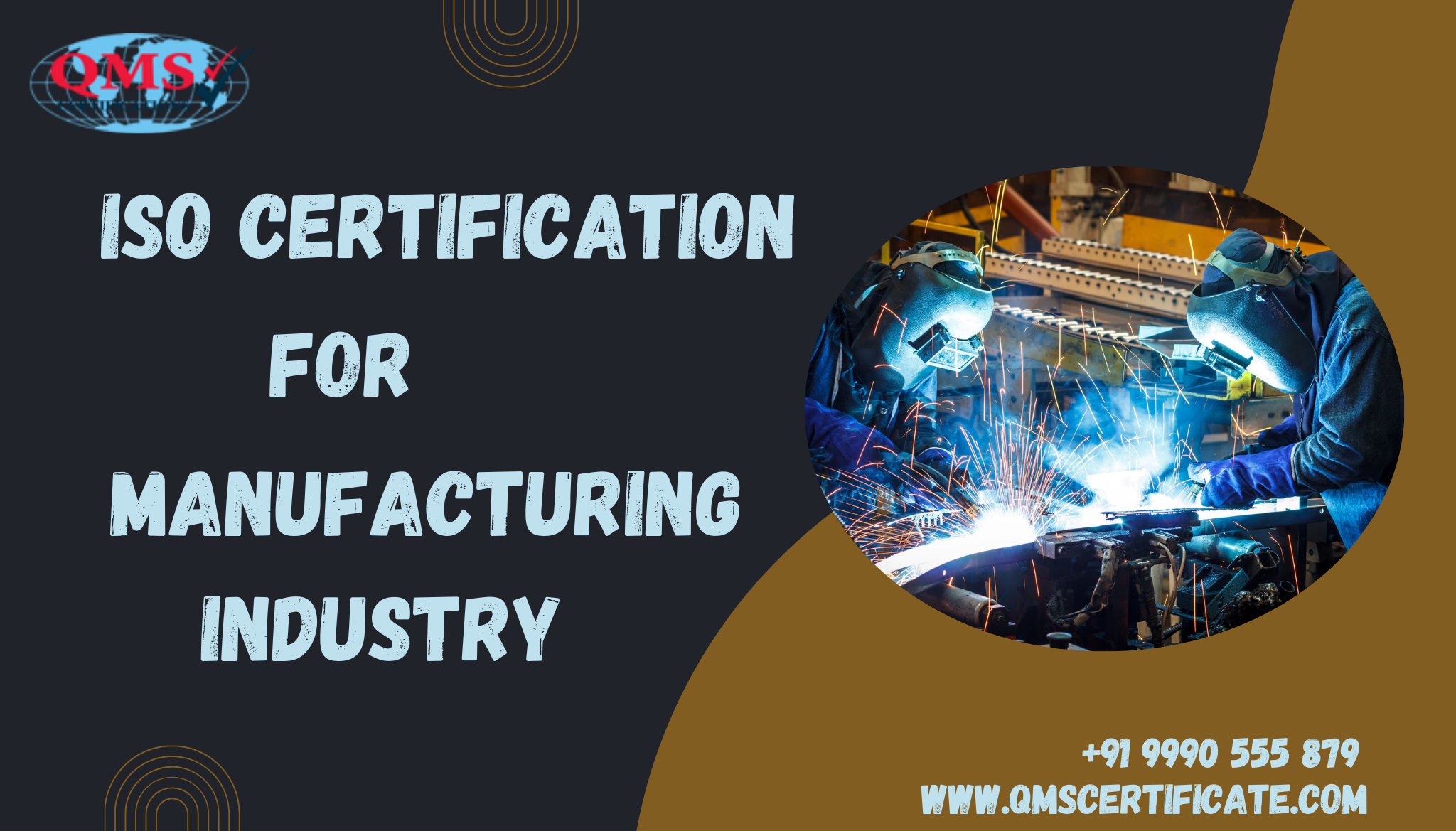ISO Certification For Manufacturing Industry

Introduction
In today’s competitive manufacturing landscape, ensuring quality is paramount. One way manufacturers achieve this is through ISO certification. ISO, or the International Organization for Standardization, sets globally recognized standards that help businesses streamline operations, improve quality, and enhance customer satisfaction. In this article, we’ll delve into the significance of ISO certification for manufacturing companies and explore essential ISO standards in the industry.
Understanding ISO Certification for Manufacturing
ISO certification is a testament to a manufacturing company’s commitment to quality management and adherence to international standards. It signifies that a company’s processes, products, and services meet the stringent requirements set forth by ISO. Achieving ISO certification involves undergoing a rigorous assessment by an accredited certification body, such as QMS Certificate.
Importance of ISO Standards for the Manufacturing Industry
ISO standards play a crucial role in the manufacturing sector by providing a framework for excellence. They help companies establish robust quality management systems, improve efficiency, reduce waste, and minimize errors. Moreover, ISO certification enhances a manufacturer’s reputation and opens doors to new business opportunities, both domestically and internationally.
ISO Certifications for Manufacturing Companies
Manufacturing companies can obtain various ISO certifications to demonstrate their commitment to quality. Some of the essential ISO standards for the manufacturing industry include:
- ISO 9001: Quality Management System (QMS)
- ISO 14001: Environmental Management System (EMS)
- ISO 45001: Management System for Occupational Health and Safety (OHSMS)
- ISO 50001: Energy Management System (EMS)
- ISO 27001: Information Security Management System (ISMS)
Activities Relating to Quality Certifications for Manufacturing
Obtaining ISO certification involves several activities, including:
- Conducting a gap analysis to assess current processes and identify areas for improvement.
- Developing and implementing quality management systems in accordance with ISO standards.
- Training employees on quality management principles, procedures, and best practices.
- Documenting processes, procedures, and work instructions to ensure consistency and traceability.
- Conducting internal audits to evaluate the effectiveness of the QMS and identify non-conformities.
- Undertaking corrective and preventive actions to address identified issues and improve performance.
- Engaging an accredited certification body, such as QMS Certificate, to conduct an external audit and grant ISO certification.
Conclusion
In conclusion, ISO certification is a hallmark of excellence for manufacturing companies. By adhering to internationally recognized standards, such as ISO 9001, ISO 14001, and ISO 45001, manufacturers can enhance quality, reduce risks, and gain a competitive edge in the global marketplace. As a leading certification provider,QMS Certificate is dedicated to helping manufacturing companies achieve ISO certification and drive continuous improvement. Contact us today at www.qmscertificate.com or call 93199 58655 to learn more about our certification services.